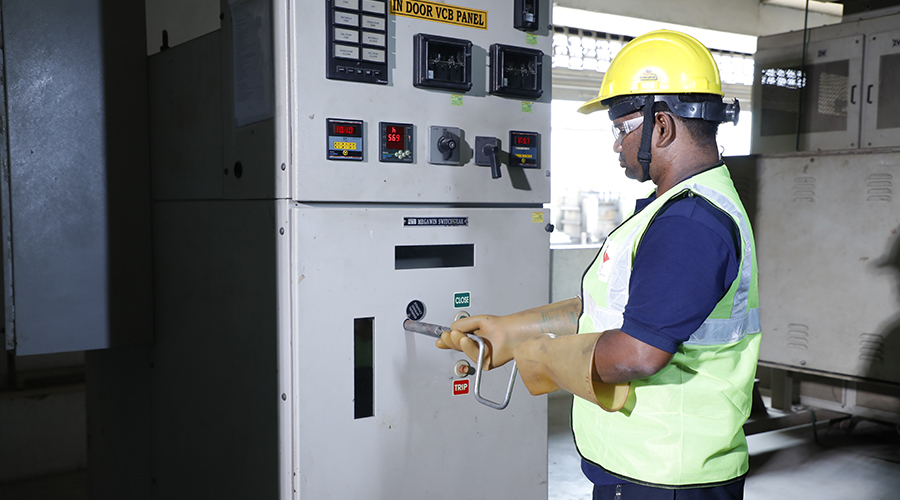Production Equipment Facility Maintenance: Tips and Strategies

The state of production equipment is critical to operational success in the dynamic world of manufacturing, where every piece of machinery plays a critical part in the smooth orchestration of processes. Modern, one-size-fits-all maintenance strategies are falling short in the face of rapidly changing industrial environments and developing technologies. The necessity for effective and customized maintenance procedures is becoming more and more evident as industries develop to maintain peak production levels and reduce downtime, especially in an environment where downtime results in large financial losses.
A forward-looking, individualistic approach to production equipment maintenance is crucial in today’s rapidly changing manufacturing environment to ensure that downtime is reduced to its minimum. The research is done, considering the principle of surpassing the normal procedures, with a concentration on the different types of equipment as well as the unique complications of HVAC systems in manufacturing plants.
1. Personalized Production Equipment Maintenance:
On this note, it is important to create maintenance schedules that are specific to the particular individual needs of each production machine. Develop a checklist that entails periodic checking, lube adjustment, and calibration based on the user manual of the equipment. By personalization of this plan, equipment life expectancy is increasing and long-term performance is optimized.
2. HVAC Maintenance for Manufacturing Facilities:
Customized Inspections: Modify the inspection plans to fit the needs of the manufacturing company for HVAC systems. Take filters and belts among the ventilation parts into consideration as the equipment works in a certain way and within specific conditions.
Customized Cleaning Programme: Understand the various cleaning requirements of HVAC parts. Effective airflow is ensured by customized cleaning schedules, which reduce equipment stress.
Precise Temperature Control Calibration: Adjust temperature settings carefully, considering the unique needs of production procedures. This method ensures a setting that is ideal for maximum output.
3. Precision in HVAC Building Maintenance:
a. Addressing Building-Specific Leaks:
Leaks should be located and fixed while taking the unique features of the production plant into account. In addition to ensuring energy conservation, this lessens the load on HVAC systems.
b. Strategic HVAC System Upgrades:
Adjust HVAC system upgrades to the needs of the building. For long-term cost reductions, take into account energy-efficient solutions that are in line with manufacturing processes’ operational requirements.
c. Customized Employee Training:
Prepare the training manual specifically for the manufacturing industry. Cultivate a culture of efficiency by making staff aware of the energy-saving techniques in their area of work.
4. Unique Maintenance Plans for the Manufacturing Industry:
a. Equipment-Specific Plans:
Makeup maintenance programs, which would include the specific needs of each piece of equipment separately. Adjustments should be made to planning for the possible variations in maintenance requirements between different equipment.
b. Data-Driven Customization:
If the schedule of maintenance is the product of the tendencies of the equipment’s data usage, it is the data that should be crunched. Since the maintenance work is now based on the collected data the frequency and unpredictability of the breakdown are diminishing.
c. Collaboration Aligned with Roles:
Recognize that the unique views of both equipment operators and maintenance crews will contribute to the performance and try to ensure that they cooperate. This ensures that a planned preventive maintenance that works more efficiently is developed.
Mixing customized approaches to HVAC and production equipment maintenance is a must for factories to achieve success. The personalized solutions are a combination of addressing the specifics of machinery and taking into account the economics of sustainability, efficiency downtime, and operating expenses in the manufacturing sector. Personalization is being put forward as a guarantee that maintenance activities are smooth and at the same time respond well to the unique needs of the advanced industrial environment.
Industrial manufacturing requires one to integrate unique methods of HVAC and production equipment maintenance, and this is even more prudent when using UPSFM framework. It reinforces the importance of tailored solutions that are based on individual features of the machines and the after-sales support should be taken into account to solve the problem with sustainability, efficiency, downtime, and operational expenses. Moreover, it illustrates the relations between production equipment maintenance and industry site management regulations, to ensure that certain processes and procedures are executed in a precise and methodical manner to prevent the occurrence of breakdowns. This underlines the fact that the UPSFM professional work cultivates an environment, that harmonizes maintenance interventions with the complexities of advanced industrial systems and, thus, assists in retaining acceptable maintenance standards and ensuring long-term system reliability.
Have any feedback or questions?
Contact us!




